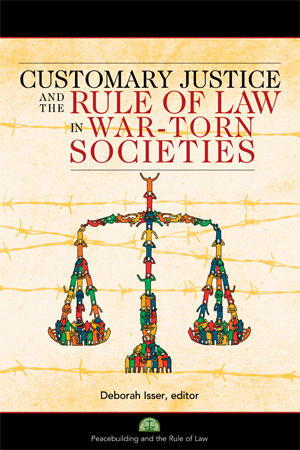Customary Justice and the Rule of Law in War-Torn Societies presents seven in-depth case studies that take a broad interdisciplinary approach to the study of the justice system. Moving beyond the narrow lens of legal analysis, the cases—Mozambique, Guatemala, East Timor, Afghanistan, Liberia, Iraq, Sudan—examine the larger historical, political, and social factors that shape the character and role of customary justice systems and their place in the overall justice sector.
The major peacekeeping and stability operations of the last ten years have mostly taken place in countries that have pervasive customary justice systems, which pose significant challenges—and opportunities—for efforts to reestablish the rule of law. These systems are the primary, if not sole, means of dispute resolution for the majority of the population, but post-conflict practitioners and policymakers often focus primarily on constructing formal justice institutions in the Western image, as opposed to engaging existing traditional mechanisms. This book offers insight into how the rule of law community might make the leap beyond rhetorical recognition of customary justice toward a practical approach that incorporates the realities of its role in justice strategies.
Customary Justice and the Rule of Law in War-Torn Societies presents seven in-depth case studies that take a broad interdisciplinary approach to the study of the justice system. Moving beyond the narrow lens of legal analysis, the cases—Mozambique, Guatemala, East Timor, Afghanistan, Liberia, Iraq, Sudan—examine the larger historical, political, and social factors that shape the character and role of customary justice systems and their place in the overall justice sector. Written by resident experts, the case studies provide advice to rule of law practitioners on how to engage with customary law and suggest concrete ways policymakers can bridge the divide between formal and customary systems in both the short and long terms.
Instead of focusing exclusively on ideal legal forms of regulation and integration, this study suggests a holistic and flexible palette of reform options that offers realistic improvements in light of social realities and capacity limitations. The volume highlights how customary justice systems contribute to, or detract from, stability in the immediate post-conflict period and offers an analytical framework for assessing customary justice systems that can be applied in any country.
Deborah Isser is the senior Rule of Law adviser at USIP's Rule of Law Center of Innovation. She directs projects on the role of non-state justice systems in post-conflict societies and on addressing property claims in the wake of conflict.
